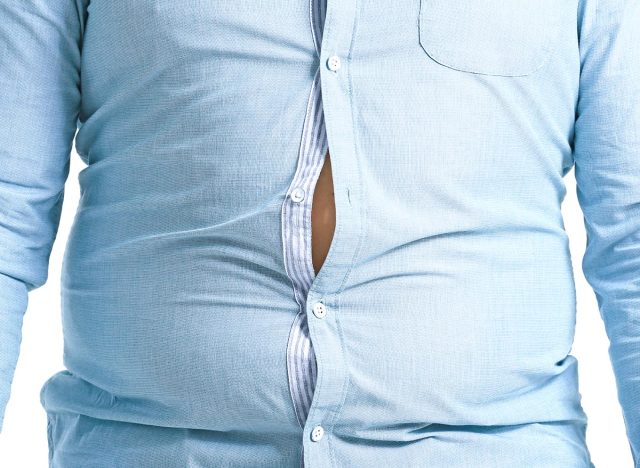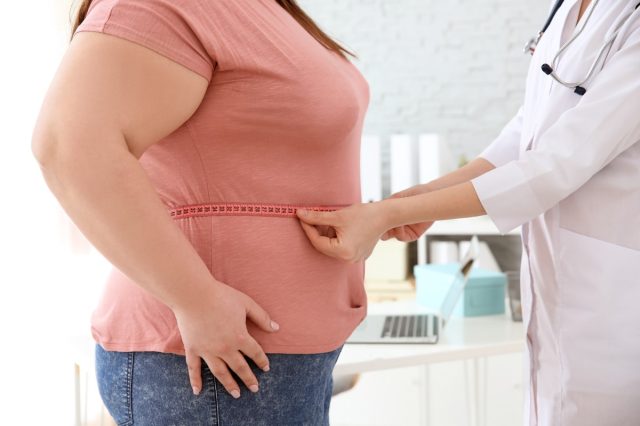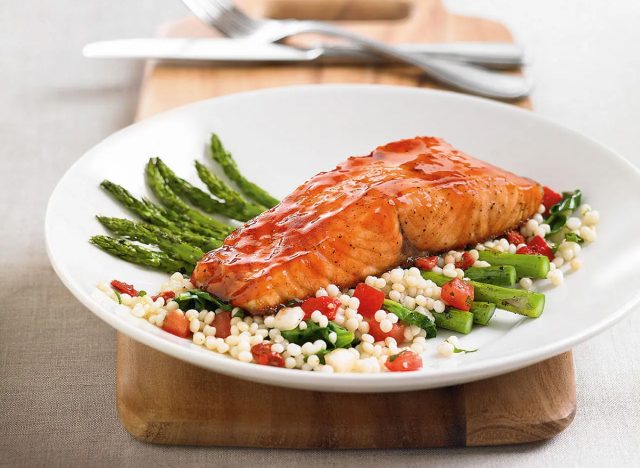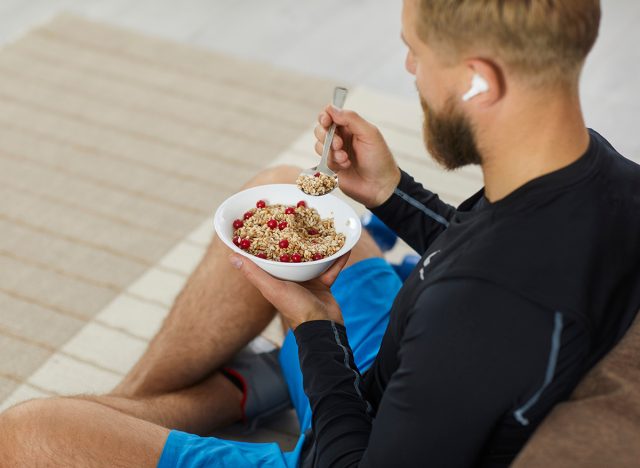As we get older, our metabolism slows down, which facilitates weight and although a few books are not generally worrying, a growing median section is more unhealthy than you think. We all know that too much fat is harmful, but the extra pounds around your waist are particularly damaging because it indicates that you have visceral fats. Unlike subcutaneous fat, which you can feel and touch, you cannot see the visceral fat. It is hidden at the bottom of your abdomen and it wraps around your vital organs, causing serious health problems such as heart disease, certain cancers, type 2 diabetes and more.
Anyone can have visceral fats and a way to fight it is with proteins. Getting enough protein in your diet can make a big difference, especially as we get older, and Dr Frank DumontMD, FACP and SENIOR MEDICAL Director of Virta Health Explain all that is to know about visceral fat and how to stimulate your protein intake can help fight belly fat after 50 years.
Why the protein is vital after 50

Proteins are important at any stage of life, but it is often overlooked as we age.
“Throughout life, amino acids (” construction blocks “of proteins) are necessary for the production of molecules, including enzymes throughout our body, and the same amino acids are necessary for the maintenance, repair and construction of tissues,” explains Dr. Dumont.
“As we are getting older and the function of the organ decreases, it is even more important than our body has what they need to do what they need to produce their specific sets of molecules and enzymes. In addition, after the age of 35, we usually start to lose muscle mass, and it accelerates after the age of 50. ”
He adds: “This can decrease our functionality and our quality of life, predispose us to injuries and can worsen our global metabolic health (which can predispose us to conditions such as diabetes, heart disease and even disease disease).
Visceral fat is dangerous


Although visceral fat is not sufficient, it is something to be aware because it has been linked to major health problems.
According to Dr. Dumont, “the increase in visceral fats (fat in and around our organs) is an indication of metabolic dysfunction and insulin resistance.
He explains: “However, visceral fat is not only an indicator of metabolic problems; This also causes them.
How the visceral fat occurs


No one can hide from visceral fat – it can happen to anyone and Dr Dumont explains why.
“When a person begins to develop resistance to insulin and metabolic dysfunction, the pancreas releases even more insulin to help maintain normal blood sugar. These higher insulin levels predispose individuals to weight gain, and the weight gain that occurs with high raised fat blinds.
He adds: “The level of resistance to an individual’s insulin is worse, the more insulin levels are likely to be raised, the more it is probable metabolically and it is likely to be and the more it is likely to store excessive energy in more dangerous visceral fat.”
How 100 grams of protein play a factor in belly fat over 50


According to Stanford lifestyle medicineAdults aged 50 and over should consume 1.2 – 1.6 grams of protein / kg of body weight per day (0.54 – 0.72 grams / weight weight per day).
Thus, for an adult weighing 165, 90-120 grams of protein is recommended. In that spirit, it is always advisable to speak to your doctor before starting a new diet diet.
“When a person focuses on the adequate contribution of proteins, energy from protein sources tends to replace less healthy forms of calories from ultra -processed foods that tend to be higher in simple sugars and carbohydrates,” said Dr. Dumont.
He explains: “Given that simple sugars and carbohydrates tend to push pancreas to release even more insulin, which, in turn, stores more fats in and around organs, eating more protein and less processed food and carbohydrates tends to encourage the body to burn fat for energy rather than keep it.”
He adds: “This means that it is not only a question of eating less and exercising more to lose visceral weight and fat. You should eat in a way that lowers insulin and decreases fat storage, and this can make a big difference in the amount of visceral fat you have and the metabolic risk.”
How to include more protein in your diet


It can be difficult to stimulate your protein intake, in particular, but Dr Dumont shares means to integrate it into your daily diet.
“One of the best ways to increase proteins in the diet is to eat real foods,” he said. “The more a food is transformed, the more it is likely to be very high in simple sugars and carbohydrates (and often in combination with highly transformed fats which are then more likely to be stored as visceral fats).”
Dr. Dumont explains: “If you focus on foods that are in a more natural state – foods that your grandparents would have recognized – they are probably higher in natural proteins and fats and complex carbohydrates, which can all support metabolic health, weight loss and visceral fats, and to preserve body muscles.”
#100g #Protein #Day #Belly #Fat



